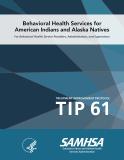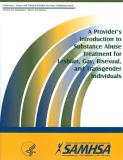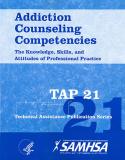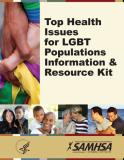
TIP 61 provides behavioral health professionals with practical guidance about Native American history, historical trauma, and critical cultural perspectives in their work with American Indian and Alaska Native clients. The TIP discusses the demographics, social challenges, and behavioral health concerns of Native Americans. It highlights the importance of providers’ cultural awareness, cultural competence, and culture-specific knowledge. The TIP also helps administrators, program managers, and clinical supervisors foster a culturally responsive environment for American Indian and Alaska Native clients. Specific topic areas include workforce development strategies, program and professional development considerations, and culturally responsive policies and procedures.
Units per Product
Download
TIP 61: Full Document
File Type: PDF
File Size: 2.63 MB







